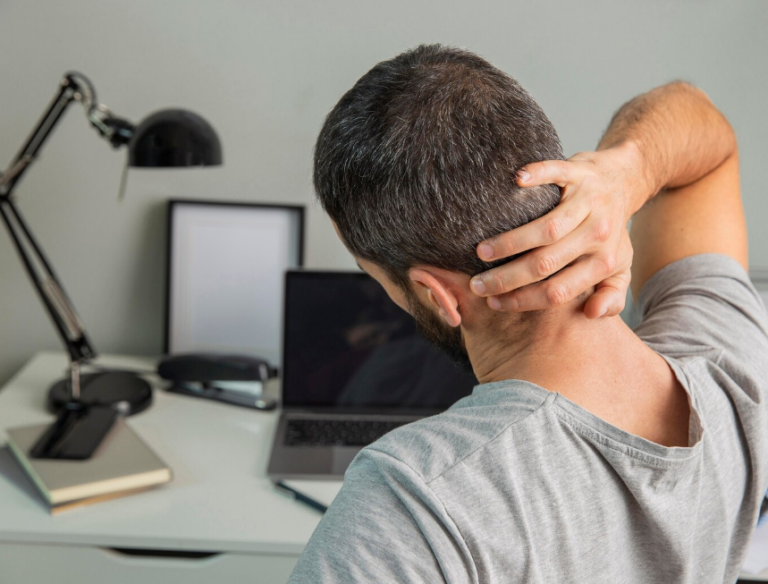Inside the Defense: How a Personal Injury Defense Lawyer Protects Clients Against Claims
The Role of a Personal Injury Defense Lawyer
What is Personal Injury Defense?
Personal injury defense is all about the strategies and actions a lawyer uses to fight back against personal injury claims. It’s a specific area of law that covers a lot of different situations, like when someone gets hurt because of a product, on someone else’s property, or even in cases of wrongful death. A good civil litigation lawyer will dig deep into the evidence, looking at things like witness statements and medical records, to build a strong case that challenges what the person making the claim is saying. Knowing the details of personal injury defense law is super important for getting through a lawsuit and protecting your own interests.
When Do You Need a Personal Injury Defense Lawyer?
If you’re facing a personal injury lawsuit or think someone might make a claim against you, getting a personal injury defense lawyer is a must. If someone says you caused their injury, it’s time to get legal advice ASAP. This includes situations like serious car accidents or medical mistakes. Talking to a lawyer early on can help you figure out your rights and what you can do, so you’re ready to defend yourself against any claims. It’s better to be prepared than caught off guard.
Qualities of an Experienced Personal Injury Defense Attorney
An experienced personal injury defense attorney needs a few key things to really help their clients. First, they need to really, really know personal injury law and have a history of handling similar cases. Strong negotiation skills are also super important. They have to be able to talk to the other side and try to get a good outcome for their client.
It’s also important that they’re good at communicating and can explain things clearly to their clients. You want someone who will keep you in the loop and make sure you understand what’s going on every step of the way. Plus, they should be dedicated to protecting your rights and fighting for the best possible result in your case.
Understanding Personal Injury Defense
Personal injury defense is all about protecting people and companies from claims that they caused someone else harm. It’s a specialized area, and it can get pretty complex depending on the situation. You might need a personal injury defense lawyer if you’re facing accusations of negligence or liability in an accident or other incident.
Motor Vehicle Accidents
Car accidents are a really common area where personal injury defense comes into play. It’s not always clear who’s at fault, and even when it seems obvious, there can be disputes about the extent of the damages. A personal injury defense lawyer will look at things like police reports, witness statements, and accident reconstruction to build a case. They might argue that their client wasn’t negligent, or that the other driver was more at fault.
Medical Malpractice
Medical malpractice cases are some of the most difficult to defend. They involve complex medical issues, and it can be hard to prove that a doctor or other healthcare provider acted negligently. A personal injury defense lawyer in this area needs to have a strong understanding of medicine, and they often work with medical experts to review the records and testify on their client’s behalf. These cases can be emotionally charged, and the stakes are often very high.
Product Liability
Product liability cases involve injuries caused by defective products. This could be anything from a faulty car part to a dangerous household appliance. Defending these cases can be tricky because it often involves proving that the product wasn’t defective, or that the injury wasn’t caused by the defect. A personal injury defense lawyer will look at the design and manufacturing process of the product, and they may also hire experts to test the product and determine if it was safe.
Possible Personal Injury Defense Tactics
When facing a personal injury claim, a solid defense strategy is super important. It’s not just about saying you’re not at fault; it’s about understanding the law and using it to your advantage. Successfully defending against a personal injury claim often depends on finding weaknesses in the plaintiff’s case. Here are some common tactics we might use:
Questioning Duty of Care
Sometimes, the whole case boils down to whether you even had a responsibility to protect the person who got hurt. Not every situation creates a legal duty. For example, if someone trespasses on your property and gets injured, you might not be responsible because you didn’t have a duty of care towards them. It’s about showing that there was no legal obligation to ensure their safety in the first place.
Disputing Negligence or Causation
Even if you had a duty of care, it doesn’t automatically mean you were negligent. The plaintiff needs to prove that you acted carelessly and that your carelessness directly caused their injuries. We might argue that you acted reasonably under the circumstances or that something else caused the injury, not your actions. Maybe the person was already hurt, or maybe something completely unrelated happened. It’s all about casting doubt on the link between your actions and their injuries.
Mitigating Damages
Okay, let’s say you were negligent and it did cause the injury. That doesn’t mean you’re on the hook for everything they’re asking for. People sometimes inflate their claims, so we look closely at the damages they’re claiming. Are their medical bills reasonable? Are they really unable to work? We might bring in experts to challenge their claims and show that the actual damages are much lower than what they’re asking for.
It’s important to remember that every case is different. The best defense strategy depends on the specific facts and circumstances. That’s why it’s so important to work with an experienced attorney who can evaluate your case and develop a plan that’s tailored to your needs.
Key Considerations in Personal Injury Defense
Preserve Evidence Immediately
Securing evidence quickly is super important. If you don’t, things can get messy, and it could really hurt your defense. Think about it: a missing security camera video, a damaged car part that gets thrown away, or even just forgetting who saw what. All of that can make it harder to prove your side of the story. Make sure you document everything and keep it safe.
Understand Insurance Involvement
Insurance companies are usually a big part of personal injury cases. You need to know what your policy covers, what it doesn’t, and what your responsibilities are. Don’t just assume your insurance company will handle everything perfectly. Read the fine print, and ask questions. It’s better to be informed than surprised later on.
Watch for Third-Party Claims
Sometimes, it’s not just you versus the person who got hurt. There might be other people or companies involved who share some of the blame. For example, if a faulty product caused the injury, the manufacturer might be partly responsible. Or, if a subcontractor did something wrong on a job site, they could be brought into the case. Identifying these third parties can shift some of the responsibility away from you.
It’s easy to get overwhelmed when dealing with a personal injury claim. There’s a lot to keep track of, and the legal stuff can be confusing. But by focusing on these key considerations – preserving evidence, understanding insurance, and watching for third-party claims – you can put yourself in a much better position to defend yourself.
Protecting Your Rights: Practical Steps
Seek Experienced Counsel
The first thing you should do is find a lawyer who knows personal injury defense inside and out. Don’t just pick someone from a phone book; look for someone with a proven track record in similar cases. A good attorney can help you understand your rights and develop a solid defense strategy from the get-go. They’ll also make sure you don’t accidentally say or do something that could hurt your case.
Document Thoroughly
Keep detailed records of everything related to the incident. This includes:
- Photos of the scene
- Medical records
- Communication with the other party
- Any related expenses
These documents can be crucial evidence when building your defense. The more information you have, the better prepared you’ll be.
Cooperate with Your Attorney
Be open and honest with your lawyer. Don’t hold back any information, even if you think it might be damaging. Your attorney needs to know everything to build the strongest possible defense. Respond promptly to their requests and keep them updated on any new developments in the case.
Remember, anything you say outside of privileged communications can be used against you. Always consult your attorney before discussing the case with anyone else.
Working with Law Firms and Insurance Companies
The Role of Law Firms in Personal Injury Defense
Law firms are really important when you’re fighting a personal injury claim. They give you lawyers who know all about this stuff. These lawyers work hard to protect you when someone sues you. They look at the case, talk to the other side, and get ready for court to build a strong defense. A good law firm will check all the facts, try to settle things fairly, and plan how to fight the case to keep you from losing too much money.
Navigating Claims with Insurance Companies
Dealing with insurance companies can be tricky. A good lawyer knows how insurance companies try to pay out as little as possible. They’ll help you understand what’s going on and fight for what’s right. They’ll talk to the insurance company and make sure they have all the right information. By knowing the law, these lawyers help you file claims correctly and respond to the insurance company the right way, protecting your interests.
Super Lawyers and Their Impact on Your Case
Super Lawyers are lawyers who are known for being really good. If you hire one of them, it can make a big difference in your case. These lawyers have lots of experience and a good reputation. This can help when you’re in court or talking to the insurance company. Hiring a Super Lawyer can improve your chances of winning your personal injury case.
It’s important to remember that every case is different, and there are no guarantees. But having a good lawyer on your side can make a big difference in how things turn out.
The Legal Process in Personal Injury Cases
Steps in the Legal Process of a Personal Injury Case
So, you’re facing a personal injury claim? It’s good to know what to expect. The process usually kicks off with the plaintiff filing a complaint. This document lays out their side of the story, what they claim you did wrong, and what damages they’re seeking. Then, you (or your lawyer) file an answer, which is basically your response to their claims. After that, things get interesting with discovery, where both sides dig up information. If you can’t reach an agreement, the case might go to trial, where a judge or jury decides the outcome.
Discovery and Evidence Gathering
Discovery is where both sides get to ask questions, request documents, and generally try to figure out what the other side knows. It can involve things like:
- Interrogatories: Written questions that have to be answered under oath.
- Depositions: Oral examinations where witnesses are questioned by lawyers.
- Requests for Production: Demands for documents, photos, emails, and other evidence.
It’s important to be honest and thorough during discovery. Anything you say or produce can be used against you later in court. Don’t try to hide anything, and always consult with your attorney before responding to any discovery requests.
Negotiation and Settlement
Most personal injury cases don’t actually go to trial. Instead, they’re resolved through negotiation and settlement. This involves back-and-forth discussions between the parties (or their lawyers) to try to reach an agreement on how much money you’ll pay to settle the claim. A good lawyer can help you assess the strengths and weaknesses of your case, and negotiate a fair settlement that protects your interests.
| Stage | Description and the legal process, I’
Frequently Asked Questions
What does a personal injury defense lawyer do?
A personal injury defense lawyer helps people or companies who are being sued because someone claims they caused an injury. Their main job is to protect their client’s rights, challenge the claims made by the person suing, and try to get the best possible result for their client.
When do I need a personal injury defense lawyer?
You should get a personal injury defense lawyer as soon as someone threatens to sue you or actually files a lawsuit against you for an injury. This includes situations like car accidents, slip and falls, or claims of medical mistakes. Getting legal help early can make a big difference.
What makes a good personal injury defense lawyer?
Good defense lawyers know a lot about personal injury law, have a history of winning similar cases, and are good at talking and working out deals. They also need to be good at looking at facts, planning out their case, and speaking up for their clients in court.
How do personal injury defense lawyers fight claims?
Defense lawyers use different ways to fight claims. They might argue that their client wasn’t really responsible for the injury, or that the person suing was partly to blame. They can also try to show that the claimed injuries or costs are not as bad as stated.
Do insurance companies get involved in these cases?
Yes, insurance companies are usually involved in personal injury cases. Your defense lawyer will work with your insurance company to handle the claim, making sure your rights are protected and that any agreements are fair.
What are the main steps in a personal injury lawsuit?
The legal process usually starts with the lawsuit being filed, then both sides gather information and evidence (called discovery). After that, they might try to settle the case outside of court. If they can’t agree, the case might go to trial.






